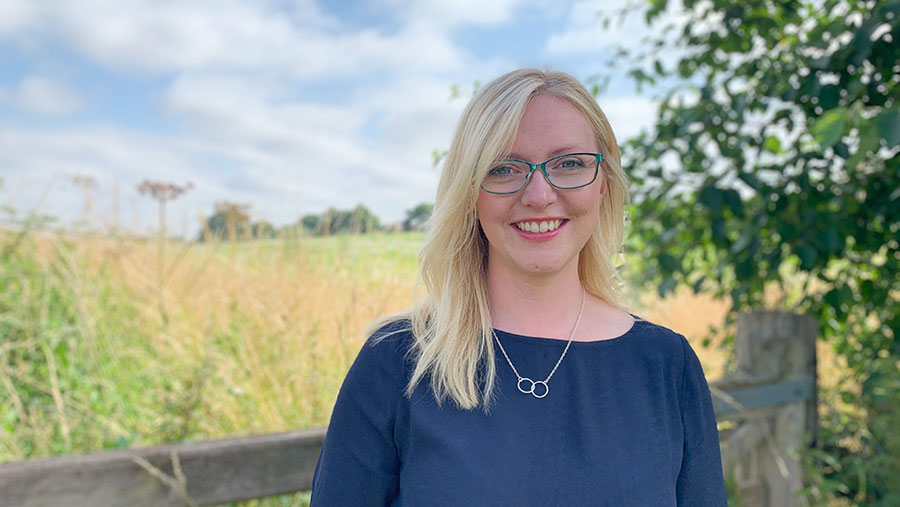Job profile: What’s it like to be a rural planning consultant?
More and more farmers and landowners need to deal with the planning system – whether it’s to expand their agricultural operations or diversify to generate new income streams.
Often they turn to experts for help and guidance through this sometimes-complex process.
Such consultant jobs are varied and offer the chance for bright, commercially minded people to make a real difference to rural businesses.
Sally Moore, 31, a rural planning consultant at Moule & Co, explains what the job involves.
See also: Read more job profiles and careers advice

Sally Moore
Tell us about your job
As a planning consultant and rural chartered surveyor, I help farmers and rural business owners make the most of their land, buildings and skills. It can embrace everything from making suggestions for the design of a barn conversion, deciding whether a proposal meets the necessary regulations, or working out what capacity is needed for a grain store.
Is it like being part-architect, part-lawyer and part-land agent?
Absolutely. A normal week can be very varied; I could be walking round farm buildings, drafting a planning application, speaking at a committee meeting or liaising with architects.
What skills do you need to do it well?
Being able to explain yourself clearly – whether to clients, other consultants, the council or other members of the team – to make sure everyone is on the same page is important.
Obviously, there are important technical skills too, such as understanding the planning process/policies and being good with IT, but those come with time and experience.
What qualifications are necessary?
My Central Association of Agricultural Valuers qualifications put me in really good stead for helping to see the bigger picture when considering all the different elements rural business owners need to take into account if they’re thinking of making changes. I gained my Royal Institution of Chartered Surveyors qualifications while in work and now aim to do the same with the Royal Town Planning Institute.
How important is your agricultural background?
Most of the clients I work with are farmers or landowners, so it has been very helpful. It might be being able to break the ice with a new client by talking about their cows or wheat crop, understanding the terminology they use, or being able to step back to look at their business as a whole and see how it can all work together. I don’t think it’s essential to come from a farming background, though – these things can be learned by spending time on farms or even taking a basic agricultural course.
Using land and buildings in new ways is going to become ever more important to farmers, right?
I speak to more and more farmers who know they want to do something “different”, but might not be sure what, or how. The most common reasons are to bring in an extra income stream so they are less reliant on the core farming income, and to create employment for family members.
Tell us about a professional moment you’ll never forget
For me, the most memorable moments are when you really help a family to achieve their goals. The first project that I achieved remains my favourite. It started off as an exercise looking into the viability of different diversification projects on a farm, which then turned into applying for planning permission for treehouse-style holiday cabins in an isolated field overlooking the Malvern Hills.
We successfully overcame issues with visual impact, ecology, design and access; three years later the first guests have stayed on the site and the cabins look fantastic.
The family have an extra string to their bow and can carry on farming, knowing they have some supporting income and the stability that offers.
What’s the bit of the job you like least?
Dealing with difficult planning officers and the bureaucracy of the planning system. Most planning officers are really helpful and generally want to work with you, but not all – so occasionally you feel like you’re banging your head against a brick wall.
What advice would you give a young person wanting to follow in your footsteps?
Get some work experience. Most companies are happy to help if they can and you can learn a lot from shadowing someone for a few days. A lot of careers advice for planners seems to be geared more towards being a planning officer than a planning consultant, so don’t be afraid to ask specifically about consultancy roles in the countryside.
What are the salaries like?
Rural salaries are generally less than town planning, but starting/junior salaries would be in the region of £20,000-£25,000, rising with experience and qualifications. Senior planning consultants could expect £40,000-plus.
